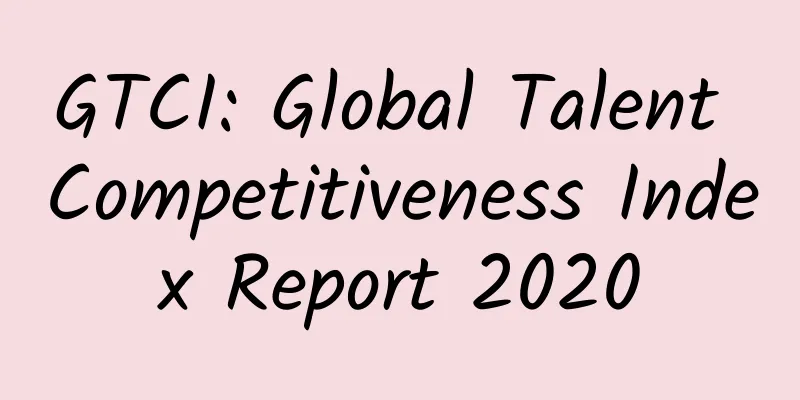GTCI: Global Talent Competitiveness Index Report 2020

|
GTCI released the "2020 Global Talent Competitiveness Index", analyzing global talent trends in the era of artificial intelligence. 1: The gap between talent-rich countries (mostly high-income countries) and the rest of the world is widening. A similar divide is also emerging in the field of artificial intelligence. AI talent is scarce and unevenly distributed across industries, sectors and countries. More than half of the population in developing countries lacks basic digital skills. 2: AI may also provide important opportunities for emerging markets to leapfrog. The GTCI’s longitudinal analysis highlights that some emerging countries (such as China, Costa Rica, and Malaysia) can become talent powerhouses in their respective regions, while others (such as Ghana and India) have significantly improved their ability to attract and retain talent. 3: Turning AI into a force for good requires a proactive, collaborative approach. AI can play a key role in providing solutions and helping humanity achieve the Sustainable Development Goals. 4: The deployment and development of AI in the workplace will require large-scale reskilling of the workforce, with workers needing training in adaptability, social intelligence, communication, and problem solving. Lifelong learning will play an increasingly important role in developing empathy, creativity, imagination, judgment, and leadership, skills that are likely to continue to be uniquely human activities. In order for humans and machines to work together effectively, developing converged skills will also require reskilling. 5: When introducing AI into businesses, communities or society at large, acceptability is a condition for sustainable development. It is also crucial to look ahead to the future of AI and jobs and emphasize the many possibilities of AI, rather than instilling more fear. 6: Cities are striving to become AI hubs and attract relevant talent. These achievements translate into different initiatives and strategies. Currently and in the future, more and more cities will become major testing areas for new AI tools, such as facial recognition, remote monitoring, and self-driving cars. The PDF version will be shared on 199IT Knowledge Planet, just scan the QR code below! |
>>: ABI Research: Research shows that 681 million 5G mobile phones will be shipped in 2022
Recommend
How should you take the medicine "three times a day"? Taking it wrong will not only reduce the efficacy of the medicine, but also harm your body!
When we go to the doctor or buy medicine, we ofte...
Is your advertising 100% successful?
"Use XXX diapers to help mom have a good sle...
Introduction to Baidu promotion information flow advertising and screen aggregation advertising!
What is a screen-gathering ad? Juping Advertising...
As a market operator, you must know the Internet operation and promotion channels!
I believe that this may be the most comprehensive...
What are some tips for early stage promotion of startups?
Every time when various Internet celebrities shar...
Tips and strategies for becoming a “super user”!
The free feast on the Internet is becoming a thin...
00Kb2's small plug-in can remove WeChat blocking!
[[351621]] Needless to say, everyone knows that t...
Xiaomi 4 frame violence test: Is the paint really peeling off?
Yesterday, Weibo user @哲野狂人 said that the Xiaomi M...
Android native modules in React Native
[[176954]] When developing Android apps with Reac...
Is there good weather and bad weather in space? Scientists reveal the secrets of "space weather" | World Space Week
World Space Week is held from October 4 to 10 eve...
World Sleep Day | Can’t sleep during the afternoon? Here’s everything you want to know about naps!
Today is World Sleep Day. Many people are concern...
Smart like the iPhone: TV remote control becomes the next stop for fingerprint recognition
"I think TV is the display of mobile phone, ...
Actionable projects for beginners, course distribution, how to earn 200+ per month?
The Internet economy is developing rapidly. The s...
When will the 20th National Congress of the Communist Party of China be held? How often is the Party’s National Congress held?
The National Congress of the Communist Party of C...









